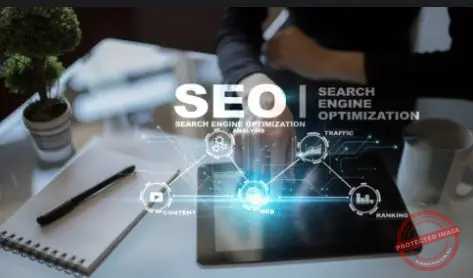AI-native SEO platforms are turning ecommerce marketing from keyword guessing into always-on, answer-optimized orchestration across search, chatbots, and marketplaces.
From Search Engines To Answer Engines
For twenty years, ecommerce SEO meant chasing blue links on a ten-result page. In 2026, that mental model is broken. Customers ask questions into AI assistants, multimodal search bars, and smart speakers. They expect one clear answer, not a list of sites to click through. That shift has given birth to an entirely new category: AI-first ecommerce SEO apps that optimize not just for ranking, but for being “the answer.”
This evolution is visible in how platforms like Google, ChatGPT-style systems, and other AI discovery engines treat content. Answer Engine Optimization, or AEO, focuses on structuring product and editorial content so AI systems can quote, summarize, and transact directly, rather than sending traffic back to long-form landing pages. Recent AEO guides describe it as the practice of making content “answer-ready” for AI-powered search, voice assistants, and chat interfaces. CXL
At the same time, ecommerce SEO in 2026 is explicitly about helping both humans and AI systems understand and trust a store’s products, with structured data, consistent branding, and experience-driven content woven together in a single strategy. SaaS SEO Agency
Inside the New Generation of AI SEO Apps
The marketing SEO apps that dominate ecommerce roadmaps in 2026 share a few common traits. They are natively AI-driven, deeply integrated with commerce platforms, and built around real-time feedback loops from both traditional search results and AI discovery engines.
One class of tools operates as “SEO control towers.” These platforms ingest search console data, crawl logs, AI assistant citations, and conversion analytics, then use large language models to surface opportunities. They flag products that never appear in AI summaries, catalogs that lack schema markup for key attributes, and content gaps around high-intent questions.
Another class focuses on AI-generated content with human-in-the-loop control. Generative SEO apps draft product descriptions, FAQ sections, buying guides, and comparison pages. They enforce a store’s brand voice, inject first-hand experience into copy, and automatically test variants against engagement metrics. This reflects wider industry data that AI-generated pages now appear in over 17 percent of top-ranking search results, pushing marketers to blend automation with editorial judgment rather than treating AI as a gimmick. Semrush
A third wave of tools integrates AEO directly into ecommerce platforms. These apps create structured FAQs, entity-rich copy, and machine-readable schemas that allow answer engines to connect the dots between brand, product, and use case. In effect, the product page becomes a data-rich knowledge card, not just a sales pitch.
E-E-A-T as the Design Principle
Underpinning all of this is E-E-A-T: Experience, Expertise, Authoritativeness, and Trustworthiness. Google’s quality guidelines and SEO ecosystems now treat E-E-A-T as a central framework for assessing content quality, especially for high-stakes verticals like health, finance, and large purchase decisions. Sure Oak+3Google for Developers+3Semrus
Modern SEO apps help ecommerce brands operationalize E-E-A-T. They score content for first-hand product experience, highlight missing author bios or credentials, and monitor trust signals like reviews and independent mentions. Integrations with review platforms and user-generated content systems allow AI to surface authentic customer stories alongside official product messaging.
Because AI discovery engines increasingly favor content that cannot be easily replicated by generic models, apps are shifting away from thin, auto-generated text toward experience-based formats: video testimonials, original research, and opinionated guides. Recent reports on 2026 SEO trends confirm that first-hand, data-rich, and human-centric content outperforms generic AI output across both search and AI assistants. Search Engine Journal
GEO: From SEO to Generative Engine Optimization
A new acronym has entered the e-commerce lexicon: GEO, or Generative Engine Optimization. In practice, GEO extends SEO principles into AI chat and shopping experiences. Retailers are experimenting with granular informational blocks, clear FAQs, and structured offers that AI models can easily recombine into personalized responses.
Industry coverage of GEO describes how major brands are reformatting their content to be “chatbot legible,” focusing less on long blog posts and more on concise, structured snippets and robust product data. WIRED Ecommerce SEO apps are responding by building GEO dashboards that track where and how brands are cited by AI assistants, flagging gaps where competitors are being recommended instead.
Case Snapshot: A Mid-Market Retailer Rewires Its SEO
Consider a mid-market fashion retailer entering 2026 with declining organic traffic, flat branded search, and rising acquisition costs. Its marketing team deploys a new AI SEO suite connected to its e-commerce platform, analytics, and CRM.
Within weeks, the app identifies that their buyers often ask conversational questions like “How do I style a burgundy blazer for a winter wedding?” in both search and social. The existing site has only product detail pages with generic copy. Using generative AI and human editors, the marketing team launches a series of AEO-focused guides that answer these questions directly while embedding structured data around occasions, styles, and fabrics.
The app then tracks changes in both traditional rankings and AI assistant citations, revealing that the brand is now being mentioned in generative overviews and shopping chats for specific styling queries. Over a quarter, organic-assisted revenue improves as the brand becomes “the answer” for key micro-moments along the buyer journey.
Risks, Governance, and the Human Layer
The arrival of AI-powered SEO apps does not eliminate risk. Over-automation can generate off-brand, inaccurate, or even non-compliant content. Relying on AI alone for complex purchasing decisions can erode trust if customers sense generic language that lacks real experience.
As a result, leading brands are introducing governance layers inside their SEO apps: approval workflows, style guardrails, fact-checking prompts, and E-E-A-T checklists. Rather than letting AI write everything, ecommerce teams are using these tools to augment strategists, editors, and product experts.
Closing Thoughts and Looking Forward
In 2026, e-commerce SEO no longer lives in a silo or a spreadsheet. It is orchestrated through AI-native applications that observe how both humans and machines interpret a brand and continuously refine content to earn trust in an answer-engine world. The most successful retailers will be those who see these apps not as shortcuts but as tools that amplify human expertise, first-hand experience, and clear storytelling.
As AI search and generative engines continue to evolve, expect e-commerce SEO apps to expand beyond websites and into product feeds, live shopping, connected TV, and in-store digital signage. Wherever a question can be asked, there will be a need to be the best, most trustworthy answer.
References:
Google Search Central, “SEO Starter Guide: The Basics,” Google, https://developers.google.com/search/docs/fundamentals/seo-starter-guide
Google Search Central, “Creating Helpful, Reliable, People-First Content,” Google, https://developers.google.com/search/docs/fundamentals/creating-helpful-content
Semrush, “26 AI SEO Statistics for 2026 + Insights They Reveal,” Semrush, https://www.semrush.com/blog/ai-seo-statistics/
Search Engine Journal, “Here’s What 2026 SEO Will Really Look Like,” Search Engine Journal, https://www.searchenginejournal.com/googles-old-search-era-is-over-heres-what-2026-seo-will-really-look-like/561410/
WIRED, “Forget SEO. Welcome to the World of Generative Engine Optimization,” WIRED, https://www.wired.com/story/goodbye-seo-hello-geo-brandlight-openai
Author and Co-Editor:
Claire Gauthier, – eCommerce Technologies, Montreal, Quebec;
Peter Jonathan Wilcheck, Co-Editor, Miami, Florida.
#ecommerceSEO #AnswerEngineOptimization #AEO #GenerativeEngineOptimization #AISEO #EEAT #EcommerceMarketingApps #GenerativeAI #DigitalCommerce #SearchInnovation
Post Disclaimer
The information provided in our posts or blogs are for educational and informative purposes only. We do not guarantee the accuracy, completeness or suitability of the information. We do not provide financial or investment advice. Readers should always seek professional advice before making any financial or investment decisions based on the information provided in our content. We will not be held responsible for any losses, damages or consequences that may arise from relying on the information provided in our content.





 AMD
AMD TMC
TMC IE
IE MSI
MSI NOK
NOK DELL
DELL ECDH26.CME
ECDH26.CME